Objective: We investigated whether changes in serum nutrient levels mediate clinical response to a micronutrient intervention for ADHD. Method: Data were compiled from two ADHD trials (8-10 weeks), one in adults† (n = 53) and one in children (n = 38). Seven outcomes included change in ADHD symptoms, mood, overall functioning (all clinician-rated) as well as response status. Change in serum/plasma nutrient levels (vitamins B12 and D, folate, ferritin, iron, zinc, and copper) were considered putative mediators. Results: A decrease in ferritin and an increase in copper were weakly associated with greater likelihood of being identified as an ADHD responder; none of the other nutrient biomarkers served as mediators. Conclusion: Further research looking at nutrients more broadly from other tissues are required to confirm these initial observations of the limited value of nutrient levels in deciphering mechanism of action. Monitoring these biomarkers on their own is unlikely helpful in understanding clinical response to a broad-spectrum micronutrient approach.
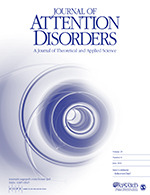
Do Changes in Blood Nutrient Levels Mediate Treatment Response in Children and Adults With ADHD Consuming a Vitamin-Mineral Supplement?
Rucklidge JJ, Eggleston MJF, Boggis A, Darling K, Gorman B, Frampton CM. J Atten Disord. 2021 Jun;25(8):1107-1119. Epub 2019 Nov 9.
Abstract
Objectives: There is an increasing body of literature documenting the efficacy of micronutrients (vitamins and minerals) interventions for the treatment of psychiatric problems in the short term; however, long-term safety is largely unexplored. The goal of this observational study was to investigate the safety of two commercially available broad-spectrum micronutrient formulas (EMPowerplus† and Daily Essential Nutrients) given at doses above the Recommended Dietary Allowances for the long-term treatment of individuals with psychiatric symptoms.
Design: Participants on long-term treatment with micronutrients (medication-free) for psychiatric problems (attention-deficit hyperactivity disorder [ADHD, n = 21], anxiety/depression [n = 13]) were identified from ongoing research studies and the community through purchasing records. Seventeen children and 17 adults had blood tests to assess their full blood count, coagulation profile, liver and kidney function, fasting glucose, iron studies, key nutrients, and prolactin. Questionnaires assessed psychological/psychiatric functioning. Seventeen of the participants had completed the same measures pretreatment.
Results: The average length of consuming micronutrients was 2.66 years (standard deviation = 2.86). Excluding B12 (which was elevated for almost all participants), 94.6% of all blood test results were within the test reference ranges. One participant was diagnosed with hemochromatosis based on iron studies. No other clinically relevant adverse changes in blood results were identified pre- and post-treatment. No clinically significant adverse effects were reported. Post-treatment psychometrics identified that 85% of the participants were in nonclinical ranges for measures of ADHD, depression, anxiety, and stress.
Conclusions: We report preliminary evidence for the safety of long-term commercially available micronutrients, although questions remain. Overall, the substantial psychiatric benefits observed appear to outweigh the minimal observed risks in these participants. Screening for potential medical problems is recommended before initiating treatment. Long-term pharmacovigilance monitoring is required to ascertain any rare but significant adverse events.
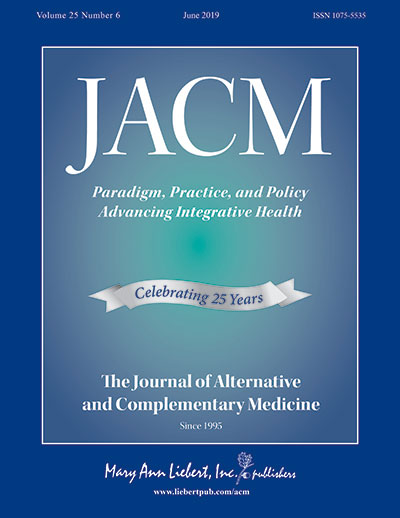
An Observational Preliminary Study on the Safety of Long-Term Consumption of Micronutrients for the Treatment of Psychiatric Symptoms
Julia J. Rucklidge, PhD, Matthew J. F. Eggleston, MD, Breanne Ealam, BA (Hons), Ben Beaglehole, MD, and Roger T. Mulder, MD. J Altern Complement Med. 2019 Jun;25(6):613-622. doi: 10.1089/acm.2018.0352. Epub 2019 May 13.
Background: Healthcare costs are skyrocketing, with mental health treatment amongst the most expensive, especially when hospitalization is involved. According to the Mental Health Commission of Canada, one in five Canadians is living with a mental disorder in any given year, at an annual cost of $50 billion. In light of this societal burden, alternative approaches are being evaluated, such as brief psychotherapy by phone, peer support, and, as part of the emerging field of nutritional mental health, treatment with micronutrients (minerals and vitamins). Effectiveness of micronutrients has been demonstrated for many types of psychiatric symptoms, in about 45 studies of formulas that are either multinutrient (e.g., several B vitamins) or broad-spectrum (usually over 20 minerals and vitamins). Although this literature demonstrates therapeutic benefits, the potential economic impact of micronutrient treatment has been evaluated in only one case study of childhood psychosis.
Methods: The current case study was initiated to evaluate mental health-related hospitalization costs from 1997 to 2003 for a female adult diagnosed with various mood and psychotic symptoms. She was treated for the first 5 years with conventional methods and then subsequently with a broad-spectrum micronutrient formula.†
Results: The patient’s annual mental health hospitalization costs during conventional treatment averaged $59,864 across 5 years (1997–2001), with a peak annual cost of about $140,000. Since transitioning to broad-spectrum micronutrients, she has incurred no provincial hospitalization costs for mental health care, though her self-funded costs are currently $720/year for the micronutrients.
Conclusion: Further exploration of the treatment of mental health problems with broad-spectrum micronutrient formulas has the potential to make two significant contributions: improved mental health, and decreased costs for governments.
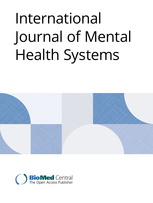
Hospitalization cost of conventional psychiatric care compared to broad‑spectrum micronutrient treatment: literature review and case study of adult psychosis
Kaplan BJ, Isaranuwatchai W, Hoch JS. Int J Ment Health Syst. 2017 Jan 31;11:14.
Objective: Despite widespread use, there is little data investigating the long-term impact of micronutrients on psychiatric disorders. This study investigated the naturalistic outcome 1-year post-baseline of a randomized controlled trials (RCT) that compared micronutrients with placebo in 80 adults with ADHD.
Method: All participants were contacted and clinician-rated questionnaires completed.
Results: A total of 72 (90%) of the sample participated; although there was significant regression in psychiatric functioning from the end-of-trial on all measures, outcomes remained significantly improved from baseline. Dominant treatment from the end-of-treatment to follow-up was investigated as a mediator of outcome; those staying on the micronutrients performed better than those who switched to medications or discontinued micronutrients. Cost was the most substantial reason why people stopped micronutrient treatment. Conclusion: For the small number of participants who stayed on micronutrients, the benefits conferred through the controlled trial were maintained. The results are limited by small sample, lack of blinding, expectation, and reliance on self-report of symptoms.
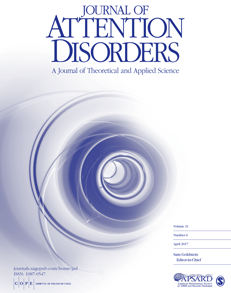
Vitamin–Mineral Treatment of ADHD in Adults: A 1-Year Naturalistic Follow-Up of a Randomized Controlled Trial
Rucklidge JJ, Frampton CM, Gorman B, Boggis A. Vitamin-Mineral Treatment of ADHD in Adults. J Atten Disord. 2017 Apr;21(6):522-532.
Emotional dyscontrol following traumatic brain injury (TBI) impairs social relationships and employability. Micronutrients (minerals, vitamins) stabilize emotional lability in psychiatric patients, and various individual nutrients have been used to treat experimental brain injury in laboratory animals in the acute phase. However, the current case report appears to be the first documentation of micronutrients resulting in normalization of emotion regulation in a long-standing brain injury in a human.
Case presentation: A broad-spectrum formula of micronutrients† was evaluated in a 35-year-old male who had incurred a severe TBI eight years previously. Resolution of most post-TBI symptoms was achieved during those eight years, but not his episodic loss of emotional control, which psychiatrists evaluated as being permanent. The trial of micronutrients began after five weeks of baseline symptom monitoring with a mood stability scale. By three months mood stability had improved markedly according to data submitted by two raters (the patient and his clinician) who were blind to each other’s evaluations. Data collection continued for one year, showing significant improvement (p<.0001), at which time the patient reported that his emotional control had returned to his pre-TBI level. The improvements led to his establishing his own business and improving his family relationships.
Micronutrient treatment resulted in resolution of this patient’s longstanding post-TBI emotional dyscontrol. Broad-spectrum micronutrient formulas are showing benefit for the treatment of mood lability in various types of psychiatric patients; this report indicates there is also potential value in using them for the emotional dyscontrol found in post-TBI patients.
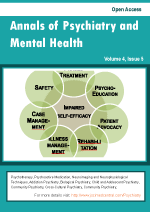
Micronutrient Treatment of Emotional Dyscontrol Following Traumatic Brain Injury
Kaplan, B. J., Leaney, C., Tsatsko, E. Annals of Psychiatry and Mental Health. 29 August 2016.
After devastating flooding in southern Alberta in June 2013, we attempted to replicate a New Zealand randomised trial that showed that micronutrient (minerals, vitamins) consumption after the earthquakes of 2010-11 resulted in improved mental health. Residents of southern Alberta were invited to participate in a study on the potential benefit of nutrient supplements following a natural disaster. Fifty-six adults aged 23-66 were randomised to receive a single nutrient (vitamin D, n=17), a few-nutrients formula (B-Complex, n=21), or a broad-spectrum mineral/vitamin formula† (BSMV, n=18). Self-reported changes in depression, anxiety and stress were monitored for six weeks. Although all groups showed substantial decreases on all measures, those consuming the B-Complex and the BSMV formulas showed significantly greater improvement in stress and anxiety compared with those consuming the single nutrient, with large effect sizes (Cohen's d range 0.76-1.08). There were no group differences between those consuming the B-Complex and BSMV. The use of nutrient formulas with multiple minerals and/or vitamins to minimise stress associated with natural disasters is now supported by three studies. Further research should be carried out to evaluate the potential population benefit that might accrue if such formulas were distributed as a post-disaster public health measure.
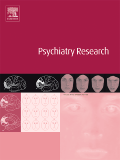
A randomised trial of nutrient supplements to minimise psychological stress after a natural disaster
Kaplan BJ, Rucklidge JJ, Romijn AR, Dolph M. Psychiatry Res. 2015 Aug 30;228(3):373-9.
In January 2014, The British Journal of Psychiatry published the results of a double-blind controlled trial which provided evidence of efficacy for micronutrients† (vitamins and minerals) in the treatment of ADHD symptoms in adults, with a reassuring safety profile.
As a follow-up to the adult trial, and pilot study for a RCT in childhood ADHD, the Journal of Child and Adolescent Psychopharmacology recently published the results of a study which treated 14 children with Attention-Deficit/Hyperactivity Disorder (ADHD) using micronutrients† instead of medication.
The study demonstrated the clinical benefit, feasibility, and safety of broad-spectrum micronutrients in the treatment of childhood ADHD.
In the recently published study, medication-free children were treated with a micronutrient formula† for eight weeks and then taken off it for four weeks—with the on-off cycle repeating itself over a six-month period.
Modified Brinley plots revealed a reduction in ADHD symptoms, improved mood, and improved overall functioning during intervention phases, and deterioration in ADHD symptoms, mood, and overall functioning during the withdrawal phases. Reliable change analyses, Cohen's d and percent superiority effect sizes, 95% confidence intervals and t tests confirmed clinically and statistically significant change between the intervention and withdrawal phases, with large effect sizes observed pre- to post-exposure of micronutrients (d = 1.2–2.2) on ADHD symptoms during intervention phases. Seventy-one percent of participants showed at least a 30% decrease in ADHD symptoms by the end of the second treatment phase, and 79% were identified as “much improved” or “very much improved” at the end of the second phase (5 months) based on the clinician-rated CGI when considering functioning generally. The SDQ showed that these benefits occurred across other areas of functioning including emotional symptoms, conduct problems, and prosocial behaviours. The children's self-reports confirmed the improvements. Excellent adherence to treatment occurred throughout, side effects were mild and transitory, and no safety issues were identified through blood analyses.
The researchers said the results were so effective that some parents were reluctant to take their children off the micronutrients† for the full four weeks. They noted “When they came off the micronutrients†, some children’s symptoms returned within days, which was a good indication of their effectiveness.”
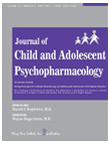
Clinically Significant Symptom Reduction in Children with Attention-Deficit/Hyperactivity Disorder Treated with Micronutrients: An Open-Label Reversal Design Study
Gordon HA, Rucklidge JJ, Blampied NM, Johnstone JM. J Child Adolesc Psychopharmacol. 2015 Dec;25(10):783-98. doi: 10.1089/cap.2015.0105. PubMed PMID: 26682999; PubMed Central PMCID: PMC4702182.
A micronutrient formulation co-developed† by Hardy Nutritionals® founder David Hardy, showed “statistically robust improvements” in the first-ever double-blind study to test the effectiveness and safety of a multivitamin-mineral supplement in adults with ADHD. Researchers from the University of Canterbury and the University of Otago, New Zealand, randomized 80 adults diagnosed with ADHD to take either the micronutrient formulation or identical-looking placebo pills for 8 weeks. Most of the study participants had at least one psychiatric diagnosis in addition to ADHD. Additional diagnoses included multiple anxiety disorders, major depressive disorder, dysthymia, bipolar disorder, reading disability, and alcohol/substance misuse or dependence. The nutrient group reported more than double the improvement in attention, hyperactivity, and impulsivity symptoms, compared with the placebo group. Clinical psychologists rated more than twice as many people in the nutrient group ‘very much’ or ‘much’ improved in overall symptoms. They also rated moderate and severely depressed participants in the nutrient group as having nearly double the improvement in depression symptoms. Researchers found that the micronutrients were completely safe; there were no differences in side effects between the two groups.
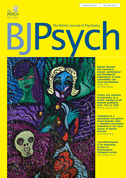
Vitamin–mineral treatment of attention-deficit hyperactivity disorder in adults: double-blind randomised placebo-controlled trial.
Rucklidge JJ, Frampton CMA, Gorman B, Boggis A. The British Journal of Psychiatry. 2014 Feb;204(2): doi: 10.1192/bjp.bp.113.132126 [Epub ahead of print]
Dr. Julia Rucklidge conducted nutrient assays on study participants in her 8 week double-blind RCT using micronutrient treatment† for adult ADHD. Using this extensive data set, she performed a post-hoc analysis of the original study in an attempt to determine if blood levels of nutrients in adult ADHD patients could be used to predict whether or not they would respond to micronutrient treatment. The blood markers measured were Vitamin D, Vitamin B12, Folate, Iron, Zinc, Copper, and Ferritin.
With the exception of Vitamin d (27% of participants deficient), nutrient deficiencies were slight or non-existent for the majority of participants at the beginning of the trial. In spite of the fact that only one participant exhibited iron deficiency, low iron levels were associated with higher baseline depression scores (p=0.009). No other nutrient significantly correlated with baseline psychiatric scores.
Throughout the course of the trial, micronutrient treatment was associated with significant increases in blood Vitamin D, Vitamin B12, and Folate (all p<0.001), but only Vitamin D was also identified as one of the nutrient markers that showed a statistically significant effect on treatment response.
The nutrient markers affecting treatment response were: ferritin, vitamin D, and copper. Greater ferritin at baseline correlated with being an ADHD responder (p=0.027). (ADHD response was defined as ≥30% decrease in symptom scores for a comprehensive combination of outcome measures. Of the 64 original study participants with complete nutrient assays, 39 (60.9%) were identified as ADHD responders.) Lower baseline vitamin D was predictive of greater improvements in depression (p=0.011) and global functioning (p=0.045) scores, and lower baseline copper levels predicted greater response in the depression (p=0.002) and clinical global improvement (p=0.007) outcome measures.
From among the non-nutrient variables measured, the researchers identified developmental history as the only noticeable predictor of response. This means that people with a history of developmental risk factors (e.g., slow to talk, walk, read, toilet train) may benefit even more from micronutrient treatment than those who developed normally as a child. It is also worth noting that several participants who reported alcohol or drug use at baseline later reported a reduction or cessation of these behaviours during micronutrient treatment, suggesting the possible value of nutrients in addiction therapy.
Only a few significant associations were identified between baseline biomarkers and outcomes, but, despite the difficulty in predicting the outcome for any given person, micronutrient treatment proved very effective – providing substantial ADHD symptom reduction for over half of the adults in this study.
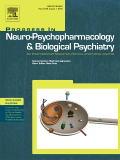
Moderators of treatment response in adults with ADHD treated with a vitamin-mineral supplement
Rucklidge JJ, Johnstone J, Gorman B, Boggis A, Frampton CM. Prog Neuropsychopharmacol Biol Psychiatry. 2014 Apr 3;50:163-71. doi:10.1016/j.pnpbp.2013.12.014. Epub 2013 Dec 26. PubMed PMID: 24374068.
Researchers collected safety, tolerability, and serum micronutrient concentration data and their correlations with mood changes from an 8-week pilot feasibility study of a broad spectrum micronutrient formula.†
Adverse effects were mild and transient, and chiefly initial insomnia or GI upset. No differences occurred in BMI (p = 0.310) or waist-hip ratio (WHR; p = 0.674) pre- to post-supplementation.
In this open prospective study, short-term use of the micronutrient formula in children with BPSD appeared safe and well-tolerated, with a side effect profile preferable to first-line psychotropic drugs for pediatric bipolar spectrum disorders. A double-blind, randomized clinical trial is feasible, appears safe, and is warranted by open-label clinical outcomes and plausible mechanisms of action combined with documentation of increased serum concentrations of specific micronutrients.

Nutritional and Safety Outcomes from an Open-Label Micronutrient Intervention for Pediatric Bipolar Spectrum Disorders
Frazier EA, Gracious B, Arnold LE, Failla M, Chitchumroonchokchai C, Habash D, Fristad MA. J Child Adolesc Psychopharmacol. 2013 Oct;23(8):558-67. doi: 10.1089/cap.2012.0098.
A 24-year-old woman who experienced dramatic improvement in her ADHD and depression symptoms for more than 2 years while taking a micronutrient formulation co-developed† by Hardy Nutritionals® founder David Hardy later experienced a recurrence of her former psychiatric symptoms as a result of a severe yeast infection. Her physical symptoms included an overall flu-like feeling; a chronic sore throat and runny nose; cravings for sugary and starchy foods; gastrointestinal cramps; and rashes and itching on her legs, groin, genital and rectal areas. Psychiatric symptoms included severe moodiness, inability to experience pleasure, and chronic irritability. These physical and psychiatric symptoms persisted for several months despite her ongoing use of a prescription antifungal cream. The woman began taking four capsules of olive leaf extract (identical to our Hardy Nutritionals™ Olive Leaf Extract) as well as two capsules of probiotics (identical to our Hardy Nutritionals™ Greens & Probiotics) daily to treat the yeast infection, in addition to her regular therapeutic dose of the micronutrients. After a week and a half, the woman’s physical and psychiatric symptoms both improved, including disappearance of her rashes, cessation of the chronic itching, elimination of her runny nose, and improved mood and energy levels. After 2 months, she had returned to her previous level of function. During a year of follow-up, researchers found that the woman continued to enjoy relief from the physical and psychiatric symptoms caused by the yeast infection as long as she continued to take the Olive Leaf Extract.

Could yeast infections impair recovery from mental illness? A case study using micronutrients and olive leaf extract for the treatment of ADHD and depression.
Rucklidge JJ. Advances in Mind-Body Medicine. 2013 Summer;27(3):14-8.
Scientists observed while conducting previous studies that many study participants whose psychiatric symptoms were treated successfully with a micronutrient formulation co-developed† by Hardy Nutritionals® founder David Hardy tended to reduce or eliminate use of alcohol, cigarettes and cannabis on their own. This study details one case in which on-off micronutrient use resulted in off-on cigarette and cannabis smoking as well as off-on psychiatric symptoms. Micronutrients provide the necessary precursors and cofactors for adequate neurotransmitter production and regulation. In this way, micronutrients assist with mood regulation, help reduce anxiety, and directly affect brain reward circuitry, all of which can help individuals to successfully stop drug use.
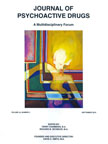
Use of micronutrients attenuates cannabis and nicotine abuse as evidenced from a reversal design: a case study.
Harrison R, Rucklidge JJ, Blampied N. Journal of Psychoactive Drugs. 2013 Jun;45(2):168-178.
An 11-year-old boy with a 3-year history of mental illness and psychiatric medication treatment was transitioned to a micronutrient formulation co-developed† by Hardy Nutritionals® founder David Hardy. The boy was diagnosed with multiple psychiatric disorders, including obsessive-compulsive disorder, generalized anxiety disorder, social anxiety disorder, and psychosis—not otherwise specified. The boy’s anxiety, obsessive-compulsive, and psychotic symptoms decreased significantly when he took the vitamin-mineral formulation, and his progress was maintained through a 4-year follow-up. A cost comparison revealed that the boy’s micronutrient treatment cost less than 1% of his former inpatient mental health care.

Efficacy and cost of micronutrient treatment of childhood psychosis.
Rodway M, Vance A, Watters A, Lee H, Bos E, Kaplan BJ. BMJ Case Reports. 2012 Nov 9;2012.
Following a 6.3-magnitude earthquake in Christchurch, New Zealand, researchers randomized 91 earthquake survivors to take one of two vitamin-mineral formulas (Berocca Performance or a micronutrient formulation co-developed† by Hardy Nutritionals® founder David Hardy. Then they measured symptoms of situation-induced depression, anxiety, and stress in these individuals, as well as 25 additional people who took no supplement (a control group). After 4 weeks, 20% of the control group, 43% of the Berocca Performance group, and 74% of the group taking the micronutrients showed significant improvement in depression, anxiety, and stress symptoms. Researchers concluded that this study supports micronutrients as an inexpensive and practical treatment for acute stress following a natural disaster, with a slight advantage to higher doses.
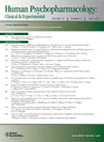
Shaken but unstirred? Effects of micronutrients on stress and trauma after an earthquake: RCT evidence comparing formulas and doses.
Rucklidge JJ, Andridge R, Gorman B, Blampied N, Gordon H, Boggis A. Human Psychopharmacology. 2012 Sep;27(5):440-54.
Researchers investigated the therapeutic effects of a micronutrient formulation co-developed† by Hardy Nutritionals® founder David Hardy in 7 children with bipolar disorder. The children’s additional psychiatric diagnoses included attention deficit hyperactivity disorder, oppositional defiant disorder, major depressive disorder, generalized anxiety disorder, conduct disorder, and obsessive-compulsive disorder. The children experienced a 37% decrease in depression scores and a 45% decrease in mania scores over 8 weeks. Side effects were minor and transient—mostly temporary gastric discomfort.
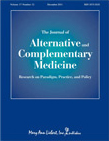
Feasibility of a nutritional supplement as treatment for pediatric bipolar spectrum disorders.
Frazier EA, Fristad MA, Arnold LE. Journal of Alternative and Complementary Medicine. 2012 Jul;18(7):678-85.
Scientists compiled safety data from all published and unpublished studies that used a micronutrient formulation co-developed† by Hardy Nutritionals® founder David Hardy which has been widely researched in the mental health field. Biological safety data from six sources, including 144 children and adults, showed no occurrences of clinically meaningful negative outcomes/effects or abnormal blood tests that could be attributed to toxicity. Adverse event information from six studies involving 157 children and adults included reports of minor, transitory headache and nausea. Only one of the studies permitted a direct comparison between tolerability of the micronutrient treatment and medications: children and adults treated with micronutrients showed significantly fewer adverse events and significantly less weight gain compared with those taking medications.

Systematic review of safety and tolerability of a complex micronutrient formula used in mental health.
Simpson JS, Crawford SG, Goldstein ET, Field C, Burgess E, Kaplan BJ. BioMed Central Psychiatry. 2011 Apr 18;11:62.
Researchers studied the impact of a micronutrient formulation co-developed† by Hardy Nutritionals® founder David Hardy on neurocognitive functioning in 14 adults with attention deficit hyperactivity disorder (ADHD) and severe mood dysregulation over an 8-week period. Significant improvement was observed in the ADHD-micronutrient group, but not the control group, across a range of verbal abilities, including verbal learning, verbal cognitive flexibility and fluency, and verbal inhibition. These neurocognitive improvements were large and consistent with improved psychiatric functioning.

Can micronutrients improve neurocognitive functioning in adults with ADHD and severe mood dysregulation? A pilot study.
Rucklidge JJ, Harrison R, Johnstone J. Journal of Alternative and Complementary Medicine. 2011 Dec;17(12):1125-31.
A 7.1-magnitude earthquake in Christchurch, New Zealand created a natural experiment for measuring the protective effects of a micronutrient formulation co-developed† by Hardy Nutritionals® founder David Hardy on mood, anxiety and stress. Prior to the earthquake, researchers had assessed mood, anxiety and stress levels in a group of 33 adults diagnosed with attention deficit hyperactivity disorder, and they chose to repeat the same measures after the earthquake. Scores showed that the 16 participants taking micronutrients were more resilient to the effects of the earthquake than the 17 individuals not taking any supplement. This effect was particularly marked for depression scores.

Post-earthquake psychological functioning in adults with attention-deficit/hyperactivity disorder: positive effects of micronutrients on resilience.
Rucklidge JJ, Blampied, NM. New Zealand Journal of Psychology. 2011;40(4):51.
The role of good nutrition for resilience in the face of stress is a topic of interest, but difficult to study. A 7.1 earthquake took place in the midst of research on a micronutrient treatment† for Attention-Deficit/Hyperactivity Disorder (ADHD), providing a unique opportunity to examine whether individuals with ADHD taking micronutrients demonstrated more emotional resilience post-earthquake than individuals with ADHD not taking micronutrients. Thirty-three adults with ADHD were assessed twice following the earthquake using a measure of depression, anxiety and stress also completed at some point pre-earthquake (baseline). Seventeen were not taking micronutrients at the time of the earthquake (control group), 16 were (micronutrient group). While there were no between-group differences one week post-quake (Time 1), at two weeks post-quake (Time 2), the micronutrient group reported significantly less anxiety and stress than the controls (effect size 0.69). These between group differences could not be explained by other variables, such as pre-earthquake measures of emotions, demographics, psychiatric status, and personal loss or damage following the earthquake. The results suggest micronutrients may increase resilience to ongoing stress and anxiety associated with a highly stressful event in individuals with ADHD and are consistent with controlled studies showing benefit of micronutrients for mental health.

Micronutrients reduce stress and anxiety following a 7.1 earthquake in adults with Attention-Deficit/Hyperactivity Disorder
Rucklidge JJ, Johnstone J, Harrison R, Boggis A. 2011. Psychiatry Research, 189:281-87.
Researchers documented the impact of a micronutrient formulation co-developed† by Hardy Nutritionals® founder David Hardy
Abstract
Objective: To investigate the effect of a 36-ingredient micronutrient formula consisting mainly of minerals and vitamins in the treatment of adults with both ADHD and severe mood dysregulation (SMD).
Method: 14 medication-free adults (9 men, 5 women; 18-55 years) with ADHD and SMD completed an 8-week open-label trial.
Results: A minority reported transitory mild side effects. Significant improvements were noted across informants (self, observer, clinician) on measures of inattention and hyperactivity/impulsivity, mood, quality of life, anxiety, and stress all with medium to very large effect sizes (all ps < .01); however, the mean of inattention remained in a clinical range whereas the means on measures of mood and hyperactivity/impulsivity were normalized. Follow-up data showed maintenance of changes or further improvement for those who stayed on the micronutrients.
Conclusions: Although this study, as an open trial, does not in itself prove efficacy, it provides preliminary evidence supporting the need for a randomized clinical trial of micronutrients as treatment for the more complex presentations of ADHD.
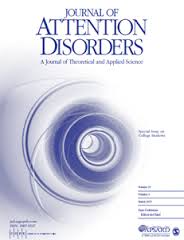
Effect of micronutrients on behaviour and mood in adults with ADHD: Evidence from an 8-week open label trial with natural extension.
Rucklidge JJ, Taylor MR, Whitehead KA. J Atten Disord. 2011 Jan;15(1):79-91.
Scientists analyzed data from 120 children with pediatric bipolar disorder who were treated with a micronutrient formulation co-developed† by Hardy Nutritionals® founder David Hardy for at least 6 months. 24% of these children also had a diagnosis of attention deficit hyperactivity disorder (ADHD). Their results were compared with an additional 41 children who were diagnosed with ADHD alone. Children with a bipolar diagnosis showed a 59% decline in symptoms, whereas children with ADHD showed a 40% decrease in symptoms. The duration of symptom reduction suggests that benefits of micronutrient treatment were not attributable to placebo or expectancy effects. Of those taking psychiatric medications, more than half were able to completely discontinue them over a 6-month period. Medication use by the remainder of children was reduced by 74% during the same time period.

Database analysis of children and adolescents with bipolar disorder consuming a micronutrient formula.
Rucklidge JJ, Gately D, Kaplan BJ. BioMed Central Psychiatry. 2010 Sep 28;10:74.
Researchers documented the effects of a micronutrient formulation co-developed† by Hardy Nutritionals® founder David Hardy on psychiatric and neurocognitive functioning in a naturalistic off-on-off-on design. A 21-year old female with bipolar II disorder, attention deficit hyperactivity disorder (ADHD), social anxiety, and panic disorder began taking a vitamin-mineral formulation following a documented 8-year history of ongoing psychiatric symptoms that were not well managed by medications. After 8 weeks on the formula, she showed significant improvements in mood, anxiety, and hyperactivity/impulsivity. She then chose to come off the formula. After 8 weeks, her depression scores returned to pre-treatment levels, and anxiety and ADHD symptoms worsened dramatically. When the formula was reintroduced, all psychiatric symptoms showed gradual improvements. After one year, she was in remission of all mental illness diagnoses. Her neurocognitive changes mirrored behavioral changes, showing improved processing speed, variability in response, and verbal memory.

Successful treatment of bipolar disorder II and ADHD with a micronutrient formula: a case study.
Rucklidge JJ, Harrison R. CNS Spectrums. 2010 May;15(5):289-95.
Researchers compared psychiatric medication and micronutrient treatment approaches in 88 children with autism spectrum disorder. The micronutrient group (taking predominately a micronutrient formulation co-developed† by Hardy Nutritionals® founder David Hardy) improved significantly more than the medication group in key ways, including notably reduced irritability, anger, and intensity of self-injurious behaviors. The micronutrient-treated group also had dramatically lower treatment side-effects.
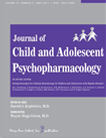
Micronutrients versus standard medication management in autism: a naturalistic case-control study.
Mehl-Madrona L, Leung B, Kennedy C, Paul S, Kaplan BJ. Journal of Child and Adolescent Psychopharmacology. 2010 Apr;20(2):95-103.
Researchers at the world-renowned Canadian Centre for Behavioural Neuroscience conducted a series of controlled studies with rats fed a micronutrient formulation co-developed† by Hardy Nutritionals® founder David Hardy to test its effects on brain injuries and brain-related disorders. Neuroscientists performed surgery on a group of young rats, removing either the entire frontal lobe of the brain or part of the parietal lobe. The researchers then fed one group of these rats Purina Rat Chow (considered to be an ideally fortified lab rat diet with 22 added vitamins and minerals) and another group the same base diet fortified with the more complete, specially-processed micronutrient formulation. Brain recovery was significantly enhanced in the micronutrient-fed rats. As the rats recovered, researchers observed that the micronutrient-fed rats showed significantly calmer behavior and dramatically improved cognitive function compared with Purina-fed rats. The brain cells of micronutrient rats were also more complexly-branched and better connected with neighboring cells than the brain cells of Purina-fed rats. The calmer behavior and enhanced cognitive function of micronutrient-treated rats are consistent with results documented by researchers around the world in many people with mood, anxiety, and behavioral disorders. The enhanced brain cell connectivity observed by researchers supports the use of micronutrient formulations for human brain recovery in conjunction with brain rehabilitation therapies.
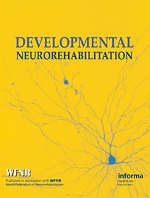
Factors influencing frontal cortex development and recovery from early frontal injury.
Halliwell C, Comeau W, Gibb R, Frost DO, Kolb B. Developmental Neurorehabilitation. 2009;12(5):269-78.
Scientists analyzed data from 358 adults with a diagnosis of bipolar disorder who took a micronutrient formulation co-developed† by Hardy Nutritionals® founder David Hardy for 6 months or more. The adults’ overall symptom severity was 41% lower than baseline after 3 months, and 45% lower after 6 months. In addition, at 6 months, 53% of adults experienced greater than 50% improvement in symptoms, with 32% of adults experiencing greater than 75% improvement in symptoms. Symptom improvements at 6 months suggested that benefits of micronutrient treatment were not attributable to placebo or expectancy effects. Of those taking psychiatric medications, nearly half were able to discontinue them over a 6-month period. The remainder reduced their medication usage by 54% during the same time period. Adults who gradually eliminated their medications and took full recommended levels of the vitamin-mineral formulation experienced the greatest improvements in symptoms.

Database analysis of adults with bipolar disorder consuming a micronutrient formula.
Gately D, Kaplan BJ. Clinical Medicine Insights: Psychiatry. 2009 Apr;4:3-16.
Researchers detail an off-on-off-on trial of an 18-year-old male diagnosed with obsessive-compulsive disorder (OCD) and Asperger’s disordera who took a micronutrient formulation co-developed† by Hardy Nutritionals® founder David Hardy. The young man first underwent cognitive behavioral therapy (CBT) for one year with a modest response. Within a year thereafter, his anxiety became severe again and he began to experience major depression. After 8 weeks of using a vitamin-mineral formulation, his mood stabilized, his anxiety reduced, and his obsessions were in remission. Treatment was then discontinued for 8 weeks, during which time his obsessions, anxiety, and mood worsened. Reintroduction of the micronutrient formula again improved mood, obsession and anxiety symptoms within 8 weeks. After taking the formulation for 6 months longer, he experienced further improvements in mood and anxiety symptoms.

Successful treatment of OCD with a micronutrient formula following partial response to Cognitive Behavioral Therapy (CBT): a case study.
Rucklidge JJ. Journal of Anxiety Disorders. 2009 Aug;23(6):836-40.
Researchers describe a 12-year-old boy who was diagnosed at age 6 with bipolar disorder. His diagnosis evolved to include psychotic features, generalized anxiety disorder and obsessive-compulsive disorder. Although he was treated with psychiatric medications for 6 years, he continued to experience many debilitating mood, anxiety, and obsessive-compulsive symptoms. During treatment with a micronutrient formulation co-developed† by Hardy Nutritionals® founder David Hardy, the boy’s global functioning notably improved. He began interacting more appropriately with peers, remained calm and playful throughout most of the day, slept throughout the night, remained focused and efficient while completing schoolwork, and experienced decreased compulsions. Eventually, his hallucinations also ceased and all diagnoses fully remitted. His symptoms remained stable during a 14-month follow-up period.

Multinutrient supplement as treatment: literature review and case report of a 12-year-old boy with bipolar disorder.
Frazier EA, Fristad MA, Arnold LE. Journal of Child and Adolescent Psychopharmacology. 2009 Aug;19(4):453-60.
Researchers treated nine unselected children with mood and behavioral problems with a micronutrient formulation co-developed† by Hardy Nutritionals® founder David Hardy. The children’s psychiatric diagnoses included attention deficit hyperactivity disorder, bipolar disorder, depression, oppositional defiant disorder, obsessive-compulsive disorder, generalized anxiety disorder, Asperger syndrome, and Prader-Willi syndrome. After a minimum of 8 weeks of micronutrient treatment, the children’s behavior improved significantly in the following areas: anxious and depressed mood, thought problems, interpersonal relationship problems, attention problems, social problems, withdrawn behavior, disruptive behavior, delinquent behavior, aggressive behavior, and self-harm behavior.

Improved mood and behavior during treatment with a mineral-vitamin supplement: an open-label case series of children.
Kaplan BJ, Fisher JE, Crawford SG, Field CJ, Kolb B. Journal of Child and Adolescent Psychopharmacology. 2004 Spring;14(1):115-22.
Researchers describe two medication-free boys with unstable mood and explosive rage who took a micronutrient formulation co-developed† by Hardy Nutritionals® founder David Hardy followed by reversal and re-treatment. The boys’ diagnoses included pervasive developmental disorder with Asperger characteristics, attention deficit hyperactivity disorder, obsessive-compulsive disorder, and autism. Both boys benefited significantly from the micronutrient formula: mood, angry outbursts, delinquent behavior, social and attention problems, and anxious/obsessional symptoms improved when initially treated, returned when they discontinued treatment, and remitted when the micronutrient treatment was reintroduced. During a follow-up of over 2 years, both boys continued to be stable while taking the micronutrient treatment.

Treatment of mood lability and explosive rage with minerals and vitamins: two case studies in children.
Kaplan BJ, Crawford SG, Gardner B, Farrelly G. Journal of Child and Adolescent Psychopharmacology. 2002 Fall;12(3):205-19.
Dr. Miles Simmons, a psychiatrist in private practice, followed nineteen patients diagnosed with bipolar I or bipolar II disorder for an average of 13 months while they took a micronutrient formulation co-developed† by Hardy Nutritionals® founder David Hardy. Sixteen of the 19 patients (84%) showed significant clinical improvement. Thirteen of 16 medicated patients were able to completely discontinue psychiatric medications over 3 to 10 weeks and maintain stability over an average follow-up period of 13 months.
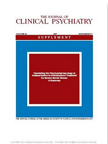
Nutritional approach to bipolar disorder.
Simmons M. The Journal of Clinical Psychiatry. 2003 Mar;64(3):338; author reply 338-9.
After observing a 10-year-old boy's dramatic response to a micronutrient formulation co-developed† by Hardy Nutritionals® founder David Hardy, Dr. Charles Popper, a psychiatrist and psycho-pharmacologist at Harvard Medical School, treated 22 additional bipolar disorder-diagnosed patients in his private practice (10 adults, 9 adolescents, and 3 preadolescents) with the micronutrients. Nineteen of the 22 patients (86%) showed a positive response to micronutrient treatment. Of the 15 patients being treated with medications when they began the nutritional supplement, 11 patients remained stable during a follow-up period of 6 to 9 months without psychiatric medications.

Do vitamins or minerals (apart from lithium) have mood-stabilizing effects?
Popper CW. The Journal of Clinical Psychiatry. 2001 Dec;62(12):933-5.
Researchers treated 11 adults diagnosed with various types of bipolar disorder for an average of 44 weeks with a micronutrient formulation co-developed† by Hardy Nutritionals® founder David Hardy. The adults’ additional diagnoses included attention deficit hyperactivity disorder, dysthymic disorder, and obsessive-compulsive disorder. The adults experienced a 55% reduction in depression symptoms, a 60% reduction in mania symptoms, and a 66% reduction in general psychiatric symptoms. Their psychiatric medication use decreased by more than 50%. The only reported side effect, nausea, was infrequent, minor, and transitory.

Effective mood stabilization with a chelated mineral supplement: an open-label trial in bipolar disorder.
Kaplan BJ, Simpson JS, Ferre RC, Gorman CP, McMullen DM, Crawford SG. The Journal of Clinical Psychiatry. 2001 Dec;62(12):936-44.